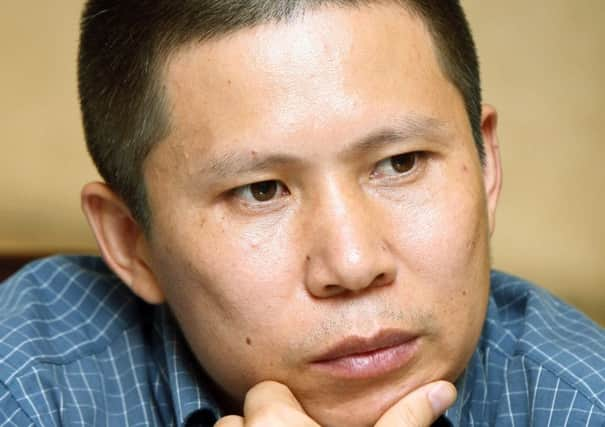Accusations of hypocrisy as Beijing lines up trial


The essentially closed-door trials underline the Xi administration’s determination to flatten any social organisations that might blossom outside the Communist Party – even if their goals largely tie with the party’s stated drive to stamp out corruption, restore its connection with ordinary people and build an equal and fair society.
The activists, members of nascent, grassroots groups known as the New Citizens movement, are charged with gathering crowds to disrupt public order.
Advertisement
Hide AdAdvertisement
Hide AdThe prosecutions come amid the Chinese leadership’s broader crackdown over the past year on dissent, including the silencing and detentions of influential bloggers and advocates for minority rights in Tibetan and Muslim Uighur areas.
“It is fear of a big crisis that might overthrow the party,” said political observer Willy Lam of the Chinese University of Hong Kong. “The crackdown is a sign of weakness.”
The centrepiece of the New Citizens crackdown is the trial today of the movement’s founder, lawyer Xu Zhiyong, in Beijing. He is charged with disrupting public order, in connection with groups of up to 100 people gathering in public places to call for equality in education or the full disclosure of public officials’ assets to curb corruption. The charge can result in a prison sentence of several years.
Xu has been seeking social changes within Chinese law and wants to foster a civil society by making Chinese aware of their rights as citizens. He has been cautious not to form any organisation, though the charges against him appear to be linked in part to his call for people to gather for monthly dinners to discuss China’s constitution.
At least six other people – Zhao Changqing, Ding Jiaxi, Li Wei, Yuan Dong, Hou Xin, and Zhang Baocheng – go on trial later in the week in Beijing on the same charge. They are believed to be the movement’s more active members.
Critics have called the crackdown hypocritical, given that one of the movement’s foremost objectives aligns with Mr Xi’s hallmark campaign to crack down on party and government corruption, and both also call for equity in education.
Roseann Rife, East Asia research director at Amnesty International, said: “Instead of president Xi Jinping’s promised clampdown on corruption, we are seeing a crackdown against those that want to expose it.”
Yesterday Chinese foreign ministry spokesman Hong Lei said Xu’s case is “a regular criminal case” that is being handled in accordance with China’s law. He asked foreign countries not to interfere.
Advertisement
Hide AdAdvertisement
Hide AdIn an additional trial in the southern city of Guangzhou, Liu Yuandong, an activist involved in public rallies for a weekly newspaper that had been censored by party officials, will go on trial on Friday on charges of disrupting public order and falsely reporting capital in business registration.
Liu is one of the founders of the Southern Street movement, a separate amorphous group with similar goals. However, the Southern Street movement also calls for an end to one-party rule.
Last year, a document purportedly circulated by the Communist Party’s top leadership warned of the dangers of citizen movements, saying they would eventually form a political opposition force to challenge the party at the grassroots level. It is widely believed to be authentic, though it has not been confirmed by top officials.